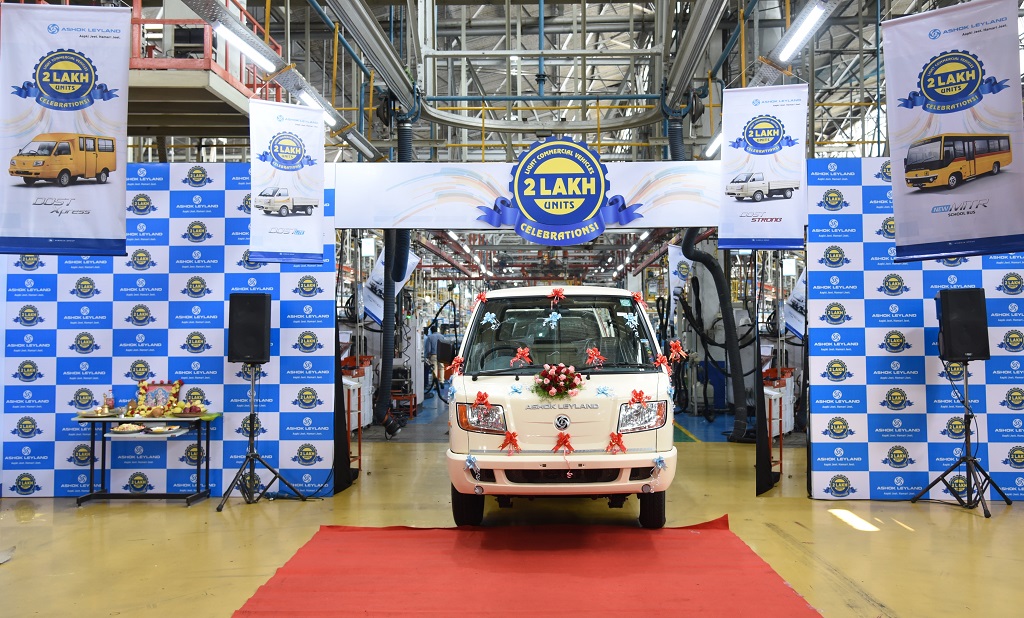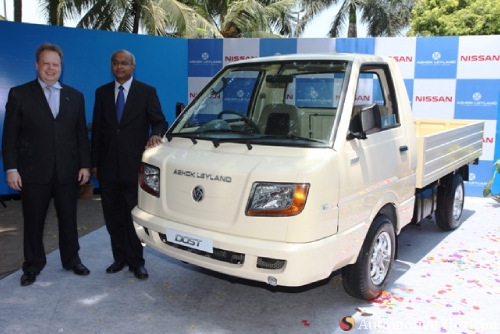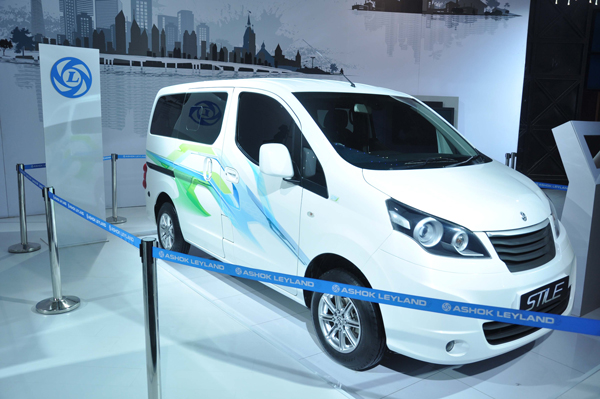Ashok Leyland, flagship announced the rollout of its 2,00,000th LCV (Light Commercial Vehicle) from its Hosur Plant. The 1,00,000 milestone of DOST was achieved within three years, in March 2015. The Company, since its entry in the LCV segment, has gained the trust of 2,00,000 customers whose livelihood depends on Ashok Leyland products.
Ashok Leyland is looking to invest over Rs. 400 crore over the next couple of years towards the development of new LCV platforms.
The first LCV ‘DOST’, was commercially launched in September 2011 and has helped the company to offer competition to players like Tata Motors and Mahindra.
The new platforms will be designed to meet requirements under BS-VI emissions standards. The company is aiming to double its market share to 30% from the current 16% ppost-2020
Over the years the Company has gained trust of these customers by delivering on the promise of ‘Aapki Jeet, Hamari Jeet’.
The company is also working on developing alternate fuel and electric versions of LCVs. Ashok Leyland’s Hosur facility has a capacity to produce 50000-55000 LCVs.
Dost is available in 3 variants – Dost, Dost+ and Dost Xpress.
Commenting on the milestone, Mr. Nitin Seth, President, LCV, Ashok Leyland, said,
“Ashok Leyland LCVs have been segment defining by delivering customer experience like no other brand. Having 2,00,000 Ashok Leyland LCVs on road in about six years is a proof of trust that our customers have placed in us. Even with our limited portfolio and no-discount policy, we have always maintained our market share.
FY18 was very significant for us as we achieved our highest LCV sales of 43,441, a growth of 37% over the previous year. Also in FY18, we launched DOST+ which added strength to the already existing DOST brand. We ended last financial year on a high note by crossing the 5000 mark per month for LCV sales for the first time since we got into the LCV business.
For us, this milestone is the beginning of our next growth chapter where we focus on bringing in more LCV products in the market and by increasing the share of LCV exports by making left-hand drive vehicles to en




